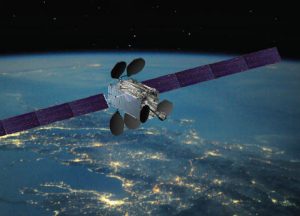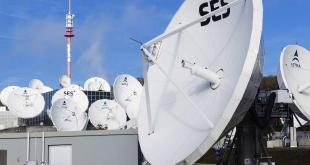
Intelsat S.A. and Q-KON have announced that Q-KON will introduce new, multiple high-speed broadband services powered by the IntelsatOne Flex for Enterprise platform. Combining a cloud-based management platform with Intelsat’s global satellite and terrestrial networks, the IntelsatOne Flex platform will enable Q-KON to rapidly deploy high-quality broadband that enables new services and applications for smaller businesses throughout Botswana, Mozambique, Namibia, South Africa, Zambia, and Zimbabwe.
Many private business and individuals at the metro edge remain unconnected. By pairing the improved throughput delivered by Intelsat’s globalized network with smaller, more capable hardware, network operators are able to cost-efficiently and profitably expand their networks beyond the cities. As a result, small businesses, schools at the metro edge, farmers, and hospitality businesses in more remote areas can receive the high-quality, affordable connectivity needed to support and grow their businesses and social programs.
Q-KON’s offering will incorporate services from Intelsat-33e, one of Intelsat’s next generation high-throughput satellites, and utilize IntelsatOne Flex for Enterprise, a managed wholesale service that removes the complexities and improves the economics of network expansion. Intelsat and Q-KON will partner on marketing the new services, while Q-KON will work with small regional and wireless ISPs and field partners for the installation and support of end-user equipment. IntelsatOne Flex for Enterprise enables Q-KON to improve the efficiency and robustness of its network and offer customized services. This means Q-KON’s partners can differentiate their services and value propositions to meet the varied needs of end users. In addition, it will enable Q-KON to close the business case and enable network expansion in regions previously uneconomical to serve – all while maintaining full control of its network.
“Over the past 18 months, we have evaluated multiple satellite operators and potential technology providers, and we are very pleased with the collaboration with Intelsat,” says Dr. Dawie de Wet CEO of Q-KON. “Intelsat truly understood the challenges we were facing in expanding our network and delivered HTS throughput via a service that allows us to tailor our offerings to meet the different requirements of our users. Through this agreement, Q-KON will leverage the advantages of the IntelsatOne Flex platform to define and structure services that solve challenges for customers across multiple verticals.”
“Broadband connectivity is spreading rapidly, but it is not spreading equally, as the economics have kept it out of reach in many parts of Africa,” said Brian Jakins, Intelsat’s regional vice president, Africa. “The technology to deliver services must be paired with new business models if telecom companies and network operators are to reach remote areas where broadband connectivity can empower economic growth. Intelsat is strongly committed to supporting Africa’s economies with better connectivity, and this collaboration with Q-KON will show how network operators can close the business case and expand enterprise operations, rural banking services and government programs to unserved areas and bridge the digital divide.”





